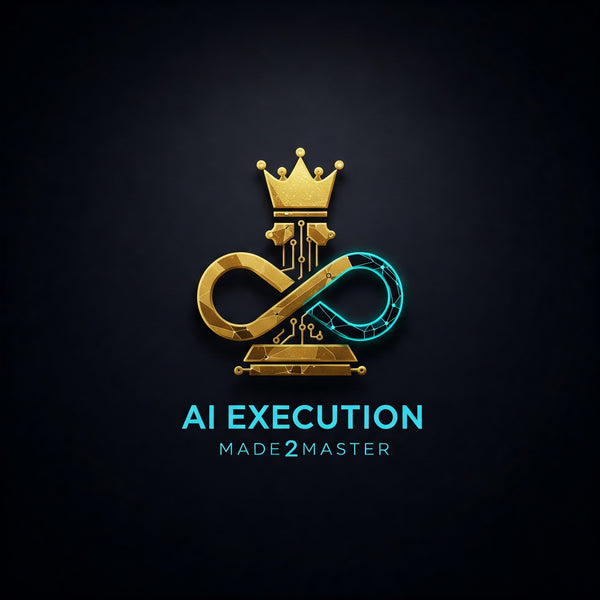The Uncriminalised Crime: Why Emotional Exploitation Hurts Like Murder
Partager
The Uncriminalised Crime: Why Emotional Exploitation Hurts Like Murder
When love is weaponised, the pain left behind is indistinguishable from grief. Yet the system calls it “life,” not crime. This is the hidden violence of emotional exploitation — a theft of trust, dignity, and years that our laws refuse to recognise.
By Festus Joe Addai — Made2MasterAI™ | 9,000+ words | Part of the Emotional Debt Series
Introduction: The Hidden Violence Nobody Prosecutes
Imagine this: a person invests years of their life, trust, and love into someone they believe will stand by them. Instead, they’re manipulated, drained of resources, and abandoned. The wound left behind is not simply “a breakup.” Neurologically, it mirrors bereavement. Spiritually, it feels like death. Economically, it functions like fraud. And yet — no courtroom will hear it.
This is the uncriminalised crime: emotional exploitation. A form of harm so pervasive that it shapes cultures, markets, and politics — yet so invisible that it’s brushed off as “just relationships.”
“If murder kills the body, and robbery strips wealth, then emotional exploitation is homicide of the soul.”
Part I — Emotional Exploitation as Theft
At its core, emotional exploitation is a form of theft. It steals:
- Time — years invested that can never be returned.
- Trust — the foundation for all future bonds.
- Dignity — a person’s sense of worth in the eyes of another.
- Potential — opportunities lost while trapped in manipulation.
If financial theft is prosecutable because it diminishes resources, why is emotional theft ignored when it diminishes lives?
Part II — Why It Hurts Like Death
The brain does not distinguish clearly between physical loss and relational loss. The same neural pathways activate when someone we love dies and when someone betrays us deeply. This is why victims of narcissistic exploitation describe their recovery as mourning — they are grieving a person who is still alive.
Part III — The Economic Parallels
Consider emotional exploitation as a market system:
- Betrayal as bankruptcy: when one partner defaults on promises, the other holds unpayable emotional debt.
- Love-bombing as inflation: flooding the system with fake currency (attention, gifts, words) until the value collapses.
- Ghosting as liquidation: vanishing suddenly, leaving unpaid accounts everywhere.
The result is systemic collapse in trust — much like a market crash leaves investors wary for decades.
Part IV — Why Society Protects Financial Theft but Ignores Emotional Theft
Why do we criminalise one and normalise the other? The answer lies in visibility. Money is countable. Property is tangible. But love, trust, and dignity are “soft assets” — their loss doesn’t leave police evidence, only broken people.
Yet the costs are real: higher suicide rates after betrayal, productivity collapse in the workplace, and generations raised in distrustful households. Emotional exploitation may not appear on GDP, but it erodes it silently.
Surprise Prompt — Audit the Crime Nobody Sees
Act as a forensic investigator of invisible crimes.
Task: Audit emotional exploitation as if it were fraud or homicide.
Steps:
1) Map the stolen assets: time, trust, dignity, opportunities.
2) Calculate damages: years lost, future income reduced, psychological toll.
3) Compare with measurable crimes: where does it sit alongside robbery or assault in severity?
4) Output:
a) Case file on “Emotional Exploitation Theft.”
b) Sentencing recommendation if law applied fairly.
c) Prevention blueprint: how society could build laws to protect dignity as much as property.Conclusion — Toward Criminalising the Soul’s Murder
We live in a paradox: a world where stealing £10 is punished, but stealing someone’s entire future through manipulation is ignored. The silent victims of this crime are everywhere — in divorce courts, abandoned homes, and therapy rooms. If we acknowledged emotional exploitation as a crime, our systems of love, work, and society would look radically different.
“The greatest theft is not of money or property, but of the life someone could have lived if they had never been exploited.”
This is not a call for over-policing feelings. It is a demand for recognition: that emotional exploitation is violence, and until we face it, we will remain a civilisation that protects wealth more than souls.
© 2025 Festus Joe Addai — Made2MasterAI™ / StealthSupply™. Quote up to 150 words with attribution and a link.
Original Author: Festus Joe Addai — Founder of Made2MasterAI™ | Original Creator of AI Execution Systems™. This blog is part of the Made2MasterAI™ Execution Stack.



